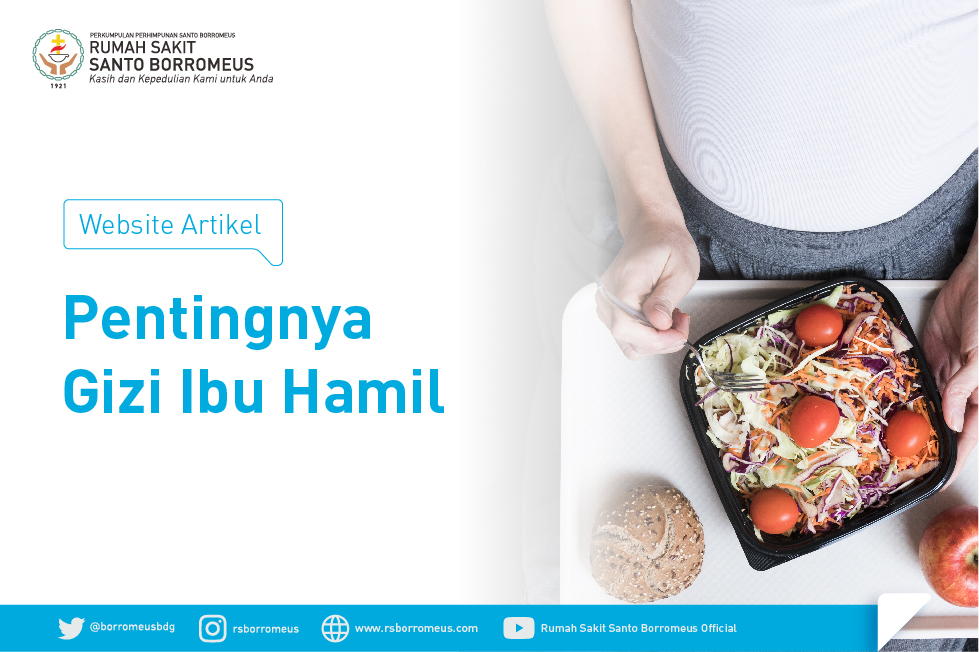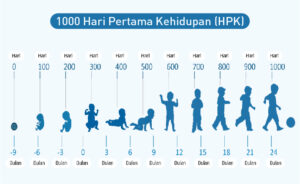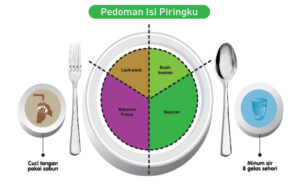
The Importance of Nutrition for Pregnant Women
Pregnancy is a happy moment that every couple looks forward to. Preparations from the room to the "little one's" toiletries are planned in detail to welcome the birth of the baby. However, not many couples realize the importance of the best nutrition before pregnancy. Optimal nutrition before pregnancy affects the health condition of the mother and baby, in the short and long term.
Preconception nutrition for the First 1000 Days of Life (HPK) is nutrition before pregnancy occurs (3 months before conception) while 1000 HPK nutrition is nutrition from conception until the child is 2 years old. Preconception nutrition is closely related to maternal and fetal health during pregnancy. Improving nutrition during pregnancy can improve the mother's deficiency condition, but it is a little too late because fetal growth and development has occurred since fertilization, so optimal preconception nutrition is very necessary to prepare for pregnancy.
1000 HPK nutrition affects fetal brain development and fetal growth because it is the most active period of fetal brain growth and development. Optimal nutrition at 1000 HPK can provide long-term effects such as reducing the risk of obesity, high blood pressure and diabetes. Optimal nutrition is nutrition in terms of the quantity and quality of food consumed to meet macronutrient needs (carbohydrates, protein and fat) and micronutrient needs (vitamins and minerals).
The energy intake requirements of pregnant women in the first trimester are the same as the energy requirements of non-pregnant women. Energy requirements increase in the second trimester of pregnancy. This is due to the increased needs of the fetus, placenta and pregnant mother. Pregnant women with a normal body mass index category require an additional 300 calories of energy/day in the second trimester and 450 calories of energy/day in the third trimester. The need for additional energy increases in malnourished mothers and is not the same in mothers who are obese. Additional energy needs by increasing intake of carbohydrate, protein and fat sources. Failure to meet the increased nutritional needs or excess intake in pregnant women causes disruption to the growth and development of the fetus.
The energy intake needs of pregnant women are met by consuming food sources of carbohydrates, protein and fat. The composition is 45-65% carbohydrates, 15-25% protein and 25-30% fat or according to the Indonesian Ministry of Health's "fill my plate" guidelines. Protein in pregnancy is for cell formation, fetal growth and maintaining maternal muscle mass. Protein requirements for pregnant women increase by 25 g/day starting in the second trimester.
Protein needs are met from animal protein sources (fish, chicken, beef, eggs), vegetable protein (tofu, tempeh and nuts). Pregnant women's fat needs are the same as healthy, non-pregnant women. Adequate DHA intake needs to be considered to support fetal brain development. Fulfillment of DHA is obtained by increasing omega-3 intake which comes from marine fish.



Apart from macronutrient needs, micronutrients in pregnant women play an important role. Micronutrients that play an important role in pregnancy are zinc, iron, choline, folic acid, iodine, vitamin A, vitamin D, vitamin B6 and vitamin B12. The need for folic acid and iron increases by 50% in pregnancy compared to healthy non-pregnant women, so pregnant women are given folic acid and iron supplementation.
Micronutrient deficiencies cause pregnancy disorders and fetal defects. Therefore, fulfilling the right nutrition in terms of quantity and type and according to needs is important in pregnancy, since planning a pregnancy. Consult with a doctor and health professional to optimally prepare for this moment of happiness.
By:

dr. Marvin Marino, Sp.GK
Dokter Spesialis Gizi Klinik Rumah Sakit Santo Borromeus
https://rsborromeus.demo-wit.id/marvin-marino/



